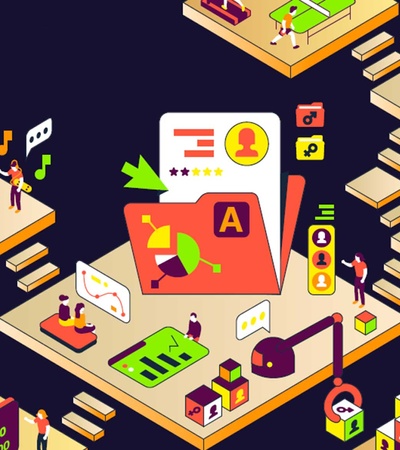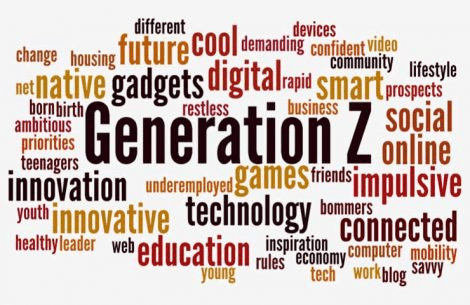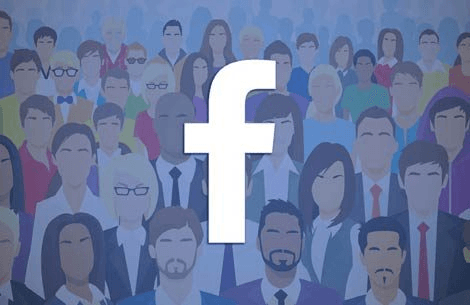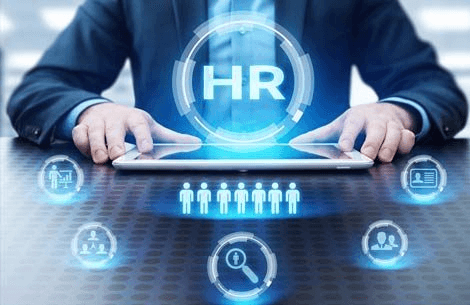Generation Z: The answer to closing the digital skills gap
The world is currently facing a digital skills gap, as technological advancement outpaces our ability to learn the demands of a digital economy.
Millions of jobs are being created against the backdrop of an unskilled labor force. As of today, about 40% of employers in the UK say they have trouble hiring entry-level jobs because of the lack of technical skills. And across the EU, about 37% of workers don’t have enough basic digital skills, according to a survey conducted by the World Economic Forum.
Young people offer a solution to closing this gap. Generation Z (people born from 1995 to 2010), in particular, were born into a digital world and have grown up living on the platforms that anchor down the new job force. They have had extensive contact with digital advertising, augmented reality filters and the impacts of artificial intelligence (if not the technical understanding).
Moreover, Randstad, a Dutch HR firm, predicts that by 2020, 36% of the workforce will be Generation Z. It will be crucial to hire managers to fill their ranks with this generation if they hope to future-proof their companies.
The dawn of the gig economy
Generation Z have come to age during the boom of the gig economy, a movement of deskless freelance workers that spans industries from technology to hospitality, and from finance to construction. This revolution in work includes some of the world’s largest corporations: Hilton, an iconic hotel chain, and IT firm Dell.
The freedom offered by the gig economy has caused some to colloquially brand these workers “digital nomads.” This label has caught on following a trend of some gig economy workers that choose to take to the road, plug in and put in their hours while traveling across the globe.
Yet, not all gig economy workers are bitten by the travel bug. Today, there are an estimated 162 million people working at “desk-less positions” in the US and EU-15 countries, according to McKinsey. This group of workers is in the midst of a dramatic growth spurt. In the UK, for example, gig economy workers have already doubled from 2016 to 2019; today, 10% of the UK labor force is considered a part of the gig economy.
GENERATION Z: A SNAPSHOT
GENERATION Z: A SNAPSHOT
- 90of freelancers are optimistic for the gig economy’s future
- 36of the global workforce was Generation Z by 2020
- 75of Generation Z demonstrate interest in STEM subjects
- 60of Generation Z won’t use apps if they are slow
The most diverse workforce in history
Future workplaces will stand out from the past for one grand reason – they will be the most diverse in history. As a result, never before will managers of businesses have confronted the complexities of hiring such a wide variety of people, who will inevitably come from different cultural, societal, geographic and educational backgrounds.
This fact is especially relevant to the digital office. The ability to hire across borders has created remote companies with a truly global workforce at the startup level. Just a decade ago, multinational corporations were the only companies able to exhibit this kind of diversity. Now it is possible for a startup to hire a design team from the Philippines and accountants from Texas while being based in Madrid, thanks in part to flourishing freelance work websites, such as Upwork.com.
At IEU, the reality of this diverse workforce is on display. The university’s student body is very international, with over 95 nationalities represented today, and both campuses – Madrid and Segovia – have more female students than male, creating an environment of gender diversity that the world’s leading companies now aspire to.
Facebook’s quest for diversity
In the summer of 2019, Facebook, the world’s sixth largest company, recognized it still had a long way to go to meet diversity goals.
During its annual diversity report, Facebook announced that its global workforce was 63.1% male, and had actually become slightly more male than in the previous year. The announcement highlights a basic challenge in the tech world, which has long been male dominated and predominantly white – effectively working against the grain of global trends in diversity.
Nevertheless, Facebook has ambitious goals. The social media giant is planning to become at least 50% “women, people who are Black, Hispanic, Native American, Pacific Islanders, people with two or more ethnicities, people with disabilities, and veterans” within the next five years. As part of that goal, the company aims to “double our number of women globally,” according to the report.
The aim of creating a diverse workforce, acknowledges Facebook, is to reflect their target market. “[Facebook] will be a company that reflects and better serves the people on our platforms, services and products. It will be a more welcoming community advancing our mission and living up to the responsibility that comes with it,” said Facebook.

Now & Next
Now & Next
Discover the forces transforming how people live and work in the modern age.
Source: The Economist
E-learning and AI reshape how people are hired and fired
Putting humanistic skills and characteristics at the center of new technology will enhance our future workplace. But a lot of those technologies are not mature or do not yet exist. So how can a student today prepare to be a part of this new workforce and be hired by a company?
Perpetual learning will become a crucial skill for all students. After leaving university, the graduate who is able to self-learn on their spare time will be the person that HR departments value the most.
Thanks to the growth of e-learning programs, companies are now offering new work-related education opportunities, much to the delight of applicants. According to research by Facebook, 65% of millennials say they chose their job because of personal and professional development opportunities, including e-learning on-the-job courses. Providing so-called “microlearning” programs also provides a bonus for employers, increasing job engagement by 50%, says a report by Software Advice.
Yet, one of the largest challenges of the future of work will be simply finding it. Already, a lot of major companies have employed automated hiring systems that vet resumes before a human even sees them. In order to pass the automated HR screening, applicants will need to understand the keywords that the AI is looking for. This will take a lot of extra work, and will force the applicant to study the industry and the role in a deeper way. No longer will we be able to expect that a well-polished resume can bring results.
In the future, uncertainty is the only thing we can predict with certainty. As a result, while the area between human worker and machine technology will change rapidly, we cannot truly understand how that will be reflected in the workforce. In this world of constant change, the value of knowledge will depreciate faster than ever before, and job descriptions posted by a company’s HR one year may require a different set of skills the next.
Photo: www.ituser.es
Hilton Hotels hires AI for HR
Some of the world’s largest companies have already started introducing AI systems for their HR departments. Hilton Hotels, a major US hotel chain, is one of the companies leading the AI revolution in hiring (and firing).

Having started applying automation to hiring in 2014, Hilton is one of the world’s pioneers in the area. Going forward, the company foresees ways that the technology will not only help to hire, but also help make decisions on internal promotions and to assess the state of wellness of its workers.
Photo: Hilton hotels

HOW CAN WE FIND PURPOSE IN A RAPIDLY EVOLVING WORLD OF WORK?
HOW CAN WE FIND PURPOSE IN A RAPIDLY EVOLVING WORLD OF WORK?
Can money buy happiness? It’s one of the most debated philosophical questions of the modern age.
According to a survey conducted by Glassdoor, one of the world’s largest job and recruiting sites, 56% of workers now say that company culture is more important than salary in terms of job satisfaction.
Data is the new oil: Making sense of the world’s most valuable resource
No matter which industry you eventually work in after leaving university, data promises to be an indisputably valuable resource at your company.

Data will become so inherent to the future of work that the World Economic Forum ranks the adoption of big data analytics as the number-one skillset that companies will adopt by 2022. Also, the following top skillsets on that list (see infographic on next page) all require large datasets to function. Following this trend, IE University offers the Bachelor in Data & Business Analytics program to meet the growing demand.
HR managers also see the importance of hiring those with data skills – as well as the pitfalls of failing to have those skills. With data, the decisionmakers at the top of corporations, startups and governments will be able to zoom in on opportunities and challenges like never before. Without that data, destiny-altering deals can be lost; existing revenue streams may dry up.
Photo: www.glassdoor.com
DIGITAL SKILLSET ADOPTION BY % OF COMPANIES, 2022
DIGITAL SKILLSET ADOPTION BY % OF COMPANIES, 2022
- 85Big data analytics
- 75Internet of things
- 73Machine learning
- 72Cloud computing
- 58Augmented and virtual reality
- 46Wearable electronicsSOURCE: WORLD ECONOMIC FORUM
Big data at AT&T: Cutting out the complexity
Big data analytics is the use of advanced techniques on large datasets to solve problems – and it is changing the world of work. This is already evident across some of the world’s largest companies.
At AT&T, the world’s largest telecommunications company, big data is used to simplify complex problems in their customer experience. “Even the simple products sometimes have very complex potential problems,” says Victor Nilson, senior vice president of big data at AT&T. Big data helps to “take the complexity out and turn it into something simple and actionable,” he adds.
AT&T now hires an increasingly large force of data scientists to help save time and money through big data analytics, and they are not alone. PwC predicts an estimated 2.7 million postings for big data-related jobs in 2020. It is not hard to see why many analysts are now calling big data science one of the best career choices today.
20 REASONS WHY BIG DATA ANALYTICS IS THE BEST CAREER MOVE (SOURCE: DATAVERSITY)
FUTURE OF WORK TAKEAWAYS
FUTURE OF WORK TAKEAWAYS
GENERATION Z WILL DEMONSTRATE MORE INTEREST IN SCIENCE AND TECHNOLOGY THAN PREVIOUS GENERATIONS.
A DIVERSE WORKPLACE ISN’T JUST GOOD PRATICE; IT IS NECESSARY TO SUCCEED.
THE JOB LIFE CYCLE -FROM HIRING TO FIRING- IS BEING FOREVER CHANGED BY TECHNOLOGY.
BIG DATA PROFESSIONALS WILL BE IN LARGE DEMAND.
WANT TO DOWNLOAD THE EBOOK?
WANT TO DOWNLOAD THE EBOOK?








